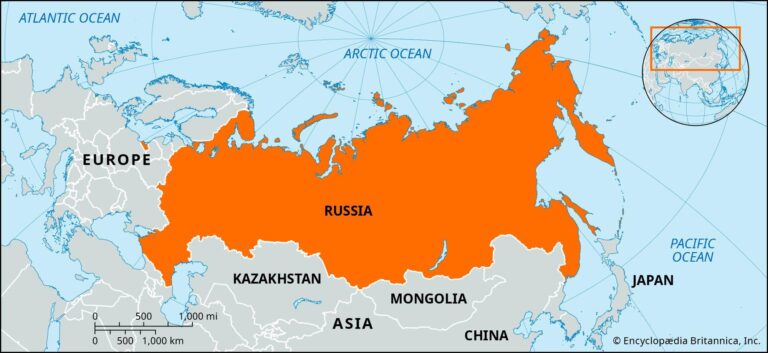In a significant move amid increasing internet restrictions, Russia has escalated efforts to curb the use of popular messaging platform WhatsApp while promoting a new domestic “super-app” designed to consolidate social, communication, and service functions. The push comes as authorities tighten control over digital spaces, coinciding with periodic internet blackouts that have disrupted connectivity across the country. This development marks a key moment in Russia’s broader strategy to assert greater control over online communication and reduce reliance on foreign technology providers.
Russia Escalates Pressure on WhatsApp Amid Widening Internet Blackouts
Amid an intensifying climate of digital control, Russian authorities have intensified their crackdown on WhatsApp, a popular messaging platform widely used across the country. This move coincides with an alarming increase in internet blackouts affecting millions, disrupting communication and access to information. The pressure tactics include imposing stricter regulations on data storage and demanding unprecedented levels of user data access from the platform, raising concerns over privacy and digital rights violations.
In parallel, Moscow is aggressively promoting a state-backed “super-app,” designed to consolidate multiple digital services under one umbrella, aiming to reduce dependency on foreign applications like WhatsApp. This strategy intends to create a controlled digital ecosystem where the government can monitor and influence online interactions more effectively. Key features of this new app include:
- Integrated messaging and calls with built-in encryption layers tailored to government oversight
- Financial transactions and e-commerce bridging users to state-approved vendors and services
- News and media channels curated to align with official narratives
| Impact Area | Description | Status |
|---|---|---|
| WhatsApp Usage | Facing restricted access and surveillance | Increasingly limited |
| Internet Blackouts | Reported in multiple regions, hindering connectivity | Worsening |
| Super-App Rollout | Encouraged adoption by state agencies and citizens | Ongoing |
Emergence of Russia’s Super App Signals Shift Toward Digital Sovereignty
In a strategic move to assert greater control over its digital landscape, Russia has introduced a new super-app aimed at consolidating various communication and service platforms into a single ecosystem. This initiative reflects a broader ambition to reduce reliance on Western technology giants such as WhatsApp, especially amid escalating concerns over internet blackouts and foreign surveillance. The emerging app combines messaging, social media, payment services, and government portals, offering users a one-stop solution that aligns with Moscow’s vision of digital sovereignty.
Experts highlight key features driving the app’s adoption:
- End-to-end encryption tailored for domestic compliance
- Integrated state services for streamlined citizen access
- Robust offline modes mitigating impact during internet disruptions
- Local data storage reducing dependence on foreign servers
| Feature | Purpose | Impact |
|---|---|---|
| Unified Messaging | Consolidate chats across platforms | Enhanced user convenience |
| Native Payment Systems | In-app transactions and government fines | Economic independence |
| Offline Capabilities | Access essential services during outages | Improved resilience |
Strategies for Users to Safeguard Communication in a Restrictive Online Environment
In the face of increasing digital restrictions, users must adopt proactive measures to maintain secure and reliable communication. Utilizing end-to-end encrypted messaging apps beyond mainstream platforms can help circumvent surveillance and censorship. Tools like Signal or Telegram’s secret chats offer enhanced privacy features, including self-destructing messages and encrypted backups. Additionally, leveraging virtual private networks (VPNs) and Tor browsers can mask user locations and evade regional blocks, ensuring continued access to blocked services.
Community awareness and digital literacy also play a crucial role in safeguarding communication. Users should be vigilant about the authenticity of links and multimedia shared via messaging, avoiding phishing and misinformation traps often deployed during blackouts. Employing multi-factor authentication (MFA) further secures accounts against unauthorized access. The table below summarises practical tools and tactics for secure communication in restrictive environments:
| Strategy | Purpose | Recommended Tools |
|---|---|---|
| End-to-End Encryption | Protect message content from interception | Signal, Telegram (Secret Chats) |
| VPN Services | Bypass geo-blocks and censorship | ExpressVPN, ProtonVPN |
| Anonymous Browsing | Hide online activity and identity | Tor Browser |
| Multi-Factor Authentication | Enhance account security | Google Authenticator, Authy |
| Digital Literacy | Recognize and avoid misinformation | Fact-check services, Awareness campaigns |
Key Takeaways
As Russia intensifies its efforts to regulate digital communication by targeting WhatsApp and promoting a domestic “super-app,” the move underscores escalating tensions over internet freedom in the country. With internet blackouts becoming increasingly common during times of unrest, these developments highlight the Kremlin’s expanding control over online spaces and its push to shape the digital landscape within its borders. Observers will continue to monitor how these measures impact both everyday users and the broader information ecosystem in Russia.




